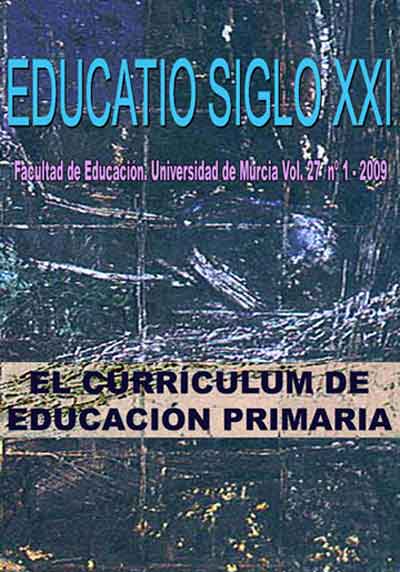Reading and Linguistic Competence in the New Curricular Framework: Some Keys
Abstract
Why do our students have so many problems to understand what they read? Why do they find so difficult to explain themselves orally? Why that lack of ideas in their compositions, which at the same time are poor and difficult to understand what they mean? What does the curriculum offer to solve this situation? This article begins with a brief reflection on the reasons for the introduction of the basic competences as the axis that guides the curriculum. Next we focus on the linguistic communication competence, its meaning, what it refers to, what the meaning of reading and understanding a text is. After that, we cope with the way this competence appears in the curricula of the different levels. For that purpose we analyse the competence in three areas: the language curriculum, the group of the linguistic areas and the group of non-linguistic
areas and subjects. Finally, we offer some reflections to improve the reading comprehension and the linguistic communication competence from the perspective of social corresponsibility to cope with it.
Downloads
-
Abstract1892
-
PDF (Español (España))1679
Original work publishes in this journal is subject to the following terms:
1. Murcia University Press (the publishing house) holds the copyright of the publishes work, and favours and allows their reutilization under the use license stated in point 2.
© Servicio de Publicaciones, Universidad de Murcia, 2015
2. Work is published in the electronic edition under a license (Creative Commons Reconocimiento-NoComercial-SinObraDerivada 4.0 España (legal text). They can be copied, used, disseminated, transmitted and publicly presented, as long as: i) authorship and original publication source is acknowledged (journal, publishing house and URL of the work); ii) are not used for commercial purposes; iii) the existence and specifications of this use license is stated.
3. Conditions for self-archive. Authors are allowed and encouraged to disseminate electronically the pre-pint (before review) and/or post-print (accepted for publication) versions of their work before their publication since that favours earlier circulation and dissemination resulting in an increased chance for the authors to be cited and for the work to reach a bigger share of the academic community. Colour: RoMEO: green.








